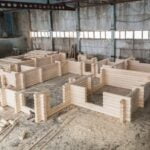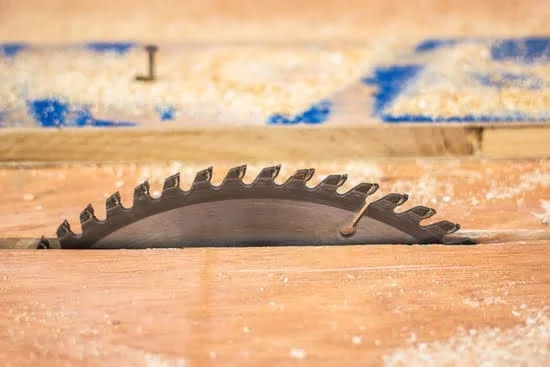In the world of drywall and woodworking, it is no secret that dust is an unavoidable byproduct. As professionals and enthusiasts in these industries work tirelessly to bring their visions to life, they often expose themselves to a wide range of health risks if proper precautions are not taken. In order to protect themselves from the dangers of dust exposure, it is crucial for individuals to understand the importance of respiratory protection.
Exposure to dust generated from drywall and woodworking activities can lead to serious health issues that should not be taken lightly. The small particles present in the air can easily enter the lungs and cause respiratory problems such as bronchitis, asthma, and even long-term conditions like silicosis.
Additionally, prolonged exposure can increase the risk of developing other serious ailments such as lung cancer or chronic obstructive pulmonary disease (COPD). The nature of these industries makes it essential for anyone involved to prioritize their well-being by utilizing appropriate respiratory protection.
To provide effective respiratory protection against dust, there are a variety of masks available in the market specially designed for use in drywall and woodworking settings. These masks serve as a barrier between the wearer’s respiratory system and harmful airborne particles. It is important for individuals working in these industries to have a comprehensive understanding of the different types of masks available so they can make informed decisions about which one best suits their needs.
By familiarizing themselves with mask ratings established by the National Institute for Occupational Safety and Health (NIOSH), individuals can choose an appropriate mask that offers adequate protection during drywall and woodworking projects. NIOSH ratings provide valuable information about a mask’s performance based on factors such as filtration efficiency, resistance to oil-based particulates, and minimum percentage values of particles filtered out.
Understanding these ratings will enable individuals to select masks that offer sufficient defense against airborne hazards while allowing them to work comfortably and efficiently.
In this comprehensive guide, we will delve into the importance of using respiratory protection in drywall and woodworking, explore the health risks associated with dust exposure, and take an in-depth look at the various masks available.
We will focus on NIOSH ratings for mask selection, examine the benefits and limitations of common masks such as N95 respirators and P100 masks, evaluate alternative options, discuss factors to consider when choosing a mask rating, and provide practical tips for proper fit and usage.
Armed with this knowledge, readers can make well-informed decisions to ensure optimal respiratory protection in their drywall and woodworking endeavors.
The Dangers of Dust Exposure
Understanding the Health Risks
Drywall and woodworking activities can generate a significant amount of dust, which poses various health risks to individuals involved in these tasks. It is essential to be aware of these dangers and take appropriate measures to protect oneself from potential harm.
One of the primary health risks associated with dust exposure in drywall and woodworking is respiratory irritation. Breathing in dust particles can cause coughing, wheezing, shortness of breath, and chest tightness. Prolonged exposure to these particles can also lead to the development of chronic respiratory conditions such as asthma or bronchitis.
Additionally, the fine particles present in dust can pose a risk to the eyes and skin. Dust particles can irritate the eyes, leading to redness, itching, and watering. Long-term exposure may even result in more severe eye conditions such as conjunctivitis or corneal abrasions. Skin contact with dust can cause dryness, itching, rash, or even dermatitis.
Specific Health Hazards
Furthermore, specific substances found in drywall and woodworking dust can have additional health hazards. For example, wood dust may contain chemicals such as formaldehyde or volatile organic compounds (VOCs) that are known to be carcinogenic or harmful to human health. Inhaling these substances repeatedly over time increases the risk of developing respiratory diseases or even certain types of cancer.
Another significant concern when working with drywall is the presence of crystalline silica. Cutting or sanding drywall releases silica dust into the air, which can cause serious lung diseases like silicosis if inhaled regularly for an extended period.
It is crucial for individuals involved in drywall and woodworking activities to understand these potential health risks and take appropriate measures to protect themselves from harmful dust exposure by using suitable respiratory protection equipment.
The Different Types of Masks
When it comes to respiratory protection in drywall and woodworking, there are several types of masks available on the market. Each mask is designed to filter out different levels of particles and provide varying degrees of protection. It’s important to understand the different types of masks and their capabilities so that you can choose the right one for your specific needs.
N95 Masks
N95 masks are the most commonly used masks for drywall and woodworking projects. These masks are certified by the National Institute for Occupational Safety and Health (NIOSH) and can filter out at least 95% of airborne particles, including dust, pollen, mold spores, and certain bacteria. They are also effective in filtering out non-oil-based particles.
N99 Masks
N99 masks offer a higher level of filtration as compared to N95 masks. These masks can filter out at least 99% of airborne particles, making them suitable for more hazardous environments where there may be a higher concentration of harmful particles present in the air.
P100 Masks
P100 masks provide maximum filtration efficiency against both oil-based and non-oil-based particles. These masks can filter out at least 99.97% of airborne particles, including dust, fumes, and other contaminants that may be present in drywall and woodworking activities.
Respirators with Replaceable Filters
Some masks come with replaceable filters that allow you to customize the level of filtration based on your specific needs. These respirators typically have different cartridges or filters that can be replaced once they become contaminated or clogged.
In addition to these main types of masks, there are also other options available such as NIOSH-approved respirators with built-in exhalation valves for easier breathing during extended periods of use, as well as powered air-purifying respirators (PAPRs) that use a battery-operated fan to draw in air through filters.
Understanding the different types of masks and their capabilities is crucial when choosing respiratory protection for drywall and woodworking projects. Consider the level of filtration needed, the type of particles present in your working environment, and the comfort and fit of the mask. By selecting the appropriate mask, you can ensure optimal respiratory protection during your projects.
NIOSH Ratings
When it comes to choosing the right mask for drywall and woodworking, understanding the NIOSH ratings is crucial. The National Institute for Occupational Safety and Health (NIOSH) provides a rating system that helps users select masks based on their level of effectiveness against airborne particles.
The NIOSH rating system consists of two main categories: oil resistance and filtration efficiency. The oil resistance rating ranges from “N” (non-oil resistant) to “R” (oil resistant for up to 8 hours) to “P” (oil proof). On the other hand, the filtration efficiency rating indicates how well the mask filters out particles, with ratings of 95, 99, or 100 representing higher levels of filtration.
To choose the appropriate mask for drywall and woodworking, it is recommended to opt for at least an N95 respirator. These masks have an efficiency rating of 95%, which means they filter out at least 95% of airborne particles. They are commonly used in construction industries where exposure to dust and small particles is high.
However, if you prefer maximum protection or work in environments with more hazardous contaminants, consider using P100 masks. These masks offer a filtration efficiency of 99.97% and provide protection against both oil-based and non-oil-based particulates. They are often used by professionals who deal with toxic materials such as lead or asbestos.
It is important to note that while N95 respirators are effective in filtering out most airborne particles associated with drywall and woodworking activities, they do not provide complete protection against gases or vapors. In situations where there may be chemical exposure, it is recommended to use additional respiratory protection like a supplied-air respirator.
N95 Respirators
N95 respirators are widely used in various industries, including drywall and woodworking, due to their effectiveness in filtering out harmful airborne particles. These masks have become popular among professionals and hobbyists alike, as they provide a high level of respiratory protection. However, it is essential to understand both the benefits and limitations of N95 respirators to ensure their appropriate use.
Benefits of N95 Respirators
One significant benefit of N95 respirators is their high filtration efficiency. They are designed to filter out at least 95% of airborne particles, including dust, pollen, mold spores, and certain bacteria. This level of filtration is crucial for protecting the wearer from inhaling harmful substances that can lead to respiratory issues or allergic reactions.
Another advantage of N95 respirators is their secure fit. These masks are designed to create a tight seal against the face, preventing air from bypassing the filtration system. This feature ensures that the majority of the inhaled air passes through the mask filters rather than leaking around the edges.
Moreover, N95 respirators are disposable and relatively affordable compared to other types of masks. They are lightweight and easy to wear for extended periods without causing discomfort or hindering normal breathing. These factors make them a convenient choice for individuals involved in drywall and woodworking projects.
Limitations of N95 Respirators
While N95 respirators offer excellent protection against airborne particles, it is essential to recognize their limitations. One significant limitation is that they do not provide adequate protection against gases, vapors, or chemicals present in some drywall materials or woodworking processes. For tasks involving such hazardous substances, additional respiratory protection may be necessary.
Furthermore, improper use or fit can compromise the effectiveness of N95 respirators. It is crucial to ensure a proper seal by performing a fit test before wearing the mask. Without a secure fit, particles can enter through gaps and render the mask less effective in providing protection.
Another limitation is the limited lifespan of N95 respirators. These masks are designed for single-use and should not be reused or shared. Extended use or reuse can lead to contamination or damage to the mask, reducing its effectiveness in filtering out particles.
P100 Masks
When it comes to ensuring maximum respiratory protection in drywall and woodworking projects, P100 masks are the go-to option. These masks provide a high level of filtration efficiency and offer maximum protection against both particles and airborne contaminants. Understanding the features and benefits of P100 masks is crucial for anyone working with drywall or engaging in woodworking activities.
One key advantage of P100 masks is their filtration capability. They are designed to filter out at least 99.97% of airborne particles, including those as small as 0.3 microns in size. This makes them highly effective in capturing dust, mold spores, pollen, and other common allergens that may be present in the air during drywall installation or woodworking tasks.
In addition to their exceptional filtration performance, P100 masks also have a tight-fitting seal around the face, ensuring that no unfiltered air enters the mask from the outside. This feature is particularly important when working with harmful substances or when exposed to hazardous materials such as lead paint or asbestos dust often found in older buildings. The secure fit helps prevent inhalation of dangerous particles and promotes a safer work environment.
| Mask Feature | Benefit |
|---|---|
| Filtration Efficiency | At least 99.97% capture rate for particles as small as 0.3 microns. |
| Tight-Fitting Seal | Prevents unfiltered air from entering the mask. |
| Durability | P100 masks have a longer lifespan compared to other mask types. |
| Compatibility | Can be used with other personal protective equipment like safety goggles or face shields. |
While P100 masks offer maximum protection, it’s essential to consider factors such as cost and comfort. These masks tend to be more expensive than other options due to their superior filtration capabilities. Additionally, the increased filtration efficiency may cause slightly higher breathing resistance, which some individuals might find uncomfortable over extended periods.
Overall, P100 masks are a reliable choice for those involved in drywall and woodworking projects. Their high filtration capacity and tight-fitting seal make them an excellent option for protecting against harmful airborne particles and ensuring a safe working environment. However, it’s crucial to weigh the advantages against factors like cost and comfort when selecting the appropriate mask rating for your specific needs.
Evaluating Other Mask Ratings
When it comes to respiratory protection in drywall and woodworking, it is important to consider all the available options for masks. While N95 respirators are commonly used, there are other mask ratings that may be more suitable for specific situations. In this section, we will explore alternative mask ratings and their suitability for drywall and woodworking projects.
One alternative option to consider is the N99 mask. Like the N95, the N99 mask filters out 99% of airborne particles. This includes dust, pollen, mold spores, and other harmful substances commonly found in drywall and woodworking environments.
The higher filtration efficiency of the N99 mask provides extra protection against smaller particles that may not be captured by an N95 mask. However, it is worth noting that the higher level of filtration also means a higher resistance to airflow, which can make breathing slightly more difficult.
Another option to consider is the R95 mask. The R95 rating indicates that the mask is resistant to oil-based particles in addition to filtering out at least 95% of airborne particles. This can be beneficial in certain woodworking applications where oil-based paints or finishes are used. The added protection against oil-based particles makes the R95 mask a suitable choice for those working with wood stains or varnishes.
Furthermore, there are also P95 masks available. Similar to the R95 rating, the P95 rating indicates resistance to oil-based particles. However, P95 masks have a higher filtration efficiency than R95 masks as they filter out at least 95% of airborne particles (including oil-based particles). This makes them a good choice for individuals working with wood that contains oils or resins.
Factors to Consider
When it comes to choosing the right mask rating for drywall and woodworking projects, there are several important factors to consider. These factors will help ensure that you are providing yourself with adequate respiratory protection while working in these industries.
Firstly, it is crucial to consider the level of dust and particulate matter present in your work environment. Drywall and woodworking can generate a significant amount of fine dust particles that can be harmful when inhaled. Understanding the potential dangers of this dust exposure is essential in selecting a mask with an appropriate rating.
Next, you should be aware of the different mask ratings available and what they signify. The National Institute for Occupational Safety and Health (NIOSH) provides guidelines for respirator ratings based on their ability to filter out airborne particles. They classify masks based on their filtering efficiency against particles of different sizes, such as N95 or P100. It is crucial to choose a mask that offers adequate protection against the specific size range of particles generated during drywall and woodworking tasks.
Additionally, consider factors such as comfort, fit, and breathability when choosing a mask rating for drywall and woodworking projects. Wearing a mask for extended periods can become uncomfortable if it does not fit properly or restricts breathing excessively. Look for masks that have adjustable straps or nose clips to ensure a secure fit that minimizes gaps between the mask and your face.
Lastly, it is important to evaluate the duration and intensity of your drywall and woodworking activities. Different projects may require varying levels of respiratory protection depending on how long you will be exposed to dust particles. If you anticipate longer exposure times or higher concentrations of dust, selecting a higher-rated mask such as a P100 may provide maximum protection.
Practical Tips for Proper Mask Fit and Usage
When it comes to protecting yourself from dust exposure in drywall and woodworking, wearing the correct mask is only part of the equation. It is equally important to ensure a proper fit and usage of the mask to maximize its effectiveness. Here are some practical tips to help you achieve optimal respiratory protection:
- Check for a snug fit: A properly fitting mask is crucial to prevent dust particles from entering your respiratory system. Make sure the mask covers both your nose and mouth completely, with no gaps or leaks around the edges. The straps should be adjusted tightly enough to keep the mask secure but not uncomfortably tight.
- Perform a seal check: Before entering a dusty environment, perform a seal check to ensure proper fitting. Cover the front surface of the respirator with your hands and take a deep breath. If you feel air leaking around the edges or notice any discomfort, readjust or replace your mask.
- Follow manufacturer’s instructions: Different masks have varying guidelines for usage and maintenance. It is essential to carefully read and follow the manufacturer’s instructions provided with each mask. This includes information on how long the mask can be used before replacing it, storage recommendations, cleaning instructions, and any other specific requirements.
- Avoid touching the mask while wearing it: Once you have put on your mask correctly, try not to touch it unnecessarily as this could compromise its effectiveness by introducing contaminants onto its surface. If you need to adjust or remove your mask temporarily, sanitize your hands thoroughly before handling it.
- Change filters regularly: Masks with replaceable filters require regular maintenance to provide adequate protection. Be sure to replace filters according to the manufacturer’s instructions or sooner if they become visibly dirty or damaged.
By following these practical tips for proper mask fit and usage, you can enhance your respiratory protection during drywall and woodworking projects. Remember, wearing a mask is not a substitute for other safety measures such as proper ventilation and dust control, but it is an essential tool in reducing the risk of harmful dust exposure. Stay informed, stay protected, and prioritize your health and safety in the workspace.
Conclusion
In conclusion, it is crucial to prioritize respiratory protection when engaging in drywall and woodworking projects. Dust exposure can pose serious health risks, including respiratory issues and potential long-term damage. Therefore, it is essential to understand the different types of masks available for this specific purpose.
When choosing a mask for drywall and woodworking, it is important to consider NIOSH ratings. These ratings indicate the level of filtration and protection that a mask provides. The most commonly used mask for these projects is the N95 respirator, which offers effective filtration against airborne particulates. However, it is important to note that N95 masks have limitations and may not provide maximum protection.
For maximum respiratory protection in drywall and woodworking, P100 masks are recommended. These masks offer superior filtration efficiency and are capable of filtering out particles as small as 0.3 microns. P100 masks provide optimal protection against both fine dust particles and toxic substances.
While N95 and P100 masks are commonly used in these industries, there are other mask ratings available that may be suitable for specific circumstances. It is important to evaluate the requirements of each project and select a mask rating accordingly.
In order to ensure proper respiratory protection, it is essential to choose a mask that fits well and is used correctly. A proper fit ensures that no gaps exist between the mask and the face, preventing unfiltered air from entering. Additionally, it is crucial to follow proper usage guidelines, such as regular replacement of filters or cartridges.
Ultimately, making an informed decision about wearing the appropriate rating of mask in drywall and woodworking projects requires understanding the potential health risks involved, evaluating different mask options based on NIOSH ratings, considering alternative options when necessary, and prioritizing proper fit and usage guidelines. By following these guidelines and taking respiratory protection seriously, individuals can significantly reduce their risk of dust-related health issues while working in these industries.
Frequently Asked Questions
What kind of mask should I wear for woodworking?
When it comes to woodworking, it is important to wear a mask that provides effective respiratory protection. A respirator mask with at least an N95 rating is recommended for this purpose.
An N95 mask filters out 95% of airborne particles and can help protect your lungs from the fine dust and debris commonly generated during woodworking activities. Look for masks that are specifically designed for woodworking or construction as they may have additional features like adjustable straps, exhaust valves, and built-in filters to enhance comfort and usability.
Does N95 protect against drywall?
N95 masks are generally effective in protecting against various airborne particles, including those generated during drywall work. Drywall dust consists of gypsum, paper fibers, and other potentially harmful substances that can irritate the eyes, nose, throat, and lungs if inhaled. An N95 mask can filter out a majority of these particles, minimizing your exposure to them.
However, it’s important to note that no mask can completely eliminate all risks associated with drywall work. Proper ventilation and other safety measures should also be employed in conjunction with wearing an appropriate mask.
Are N95 masks good for sanding drywall?
Yes, N95 masks are typically suitable for sanding drywall due to their ability to filter out fine particulate matter effectively. Sanding drywall creates substantial amounts of dust composed of gypsum-containing compounds, silica (if joint compound is used), and other potential irritants or allergens. Wearing an N95 mask while sanding helps minimize the inhalation of these tiny particles into your respiratory system.
It is essential to properly fit the mask on your face to ensure a tight seal so that air only enters through its filtration system rather than around its edges. Additionally, follow proper safety precautions such as using protective eyewear and ensuring good ventilation in the workspace to further reduce any potential health risks associated with sanding drywall.

Hi everyone! I’m a woodworker and blogger, and this is my woodworking blog. In my blog, I share tips and tricks for woodworkers of all skill levels, as well as project ideas that you can try yourself.





